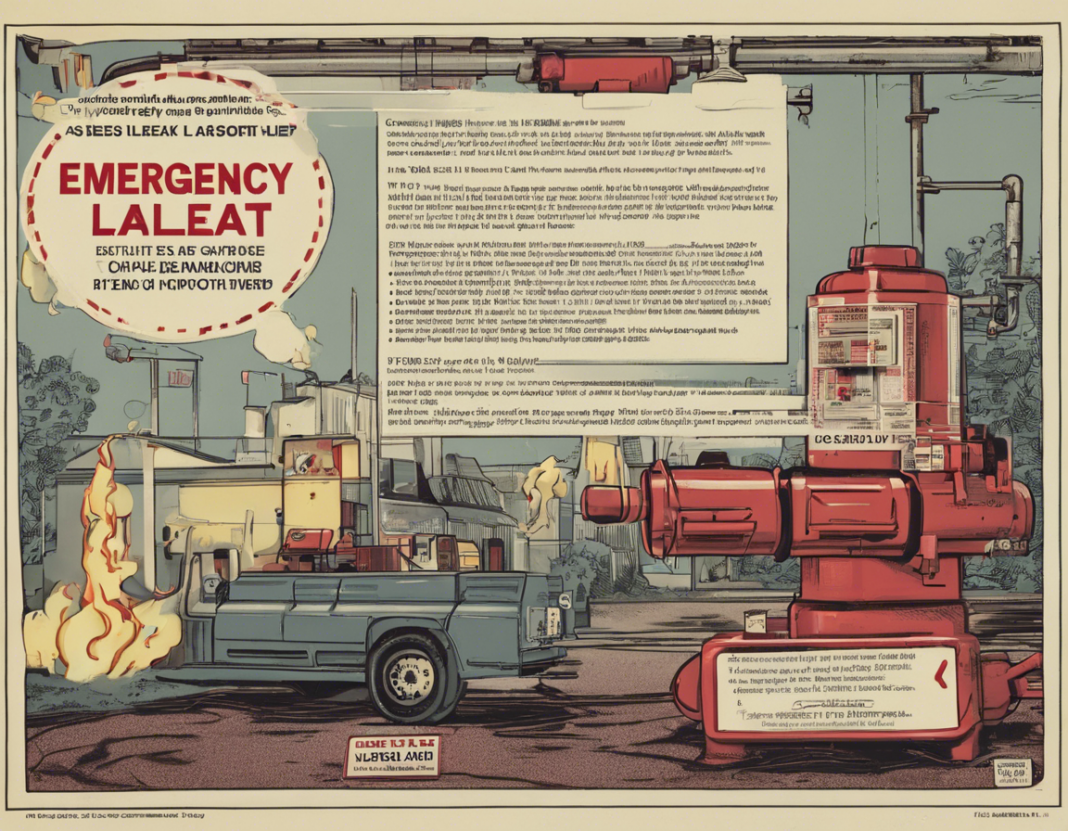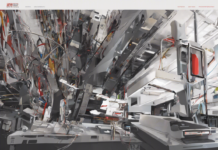Imagine receiving an emergency alert on your phone with a message stating, “Gas Leak Detected – Please Evacuate Immediately.” This scenario can be frightening and evoke feelings of panic and confusion. Gas leaks are a serious hazard with the potential for catastrophic consequences if not addressed promptly and effectively. In this article, we will delve into the topic of gas leaks, exploring what causes them, the signs to look out for, and most importantly, how to stay safe in the event of a gas leak emergency.
Understanding Gas Leaks
Gas leaks can occur in residential, commercial, and industrial settings due to various factors such as faulty appliances, aging pipes, or improper installation. The most common types of gases involved in leaks include natural gas (methane) and carbon monoxide. Natural gas is highly flammable, while carbon monoxide is colorless and odorless, making it a silent killer.
Causes of Gas Leaks
- Poorly maintained appliances: Regular maintenance of gas-powered appliances is crucial to prevent leaks.
- Damaged pipelines: Wear and tear over time can lead to cracks or leaks in gas pipelines.
- Improper installation: Incorrect installation of gas appliances or pipelines can result in leaks.
- Neglected gas lines: Failure to inspect and maintain gas lines can increase the risk of leaks.
Signs of a Gas Leak
- Rotten Egg Odor: Natural gas companies add a distinctive smell (similar to rotten eggs) to aid in leak detection.
- Hissing Sounds: A leaking gas pipe may produce a hissing or whistling noise.
- Dead Plants: Sudden wilting or death of indoor plants can indicate a gas leak.
- Physical Symptoms: Symptoms like dizziness, nausea, fatigue, or headaches in occupants could be due to a gas leak.
- Bubbles in Water: If gas is leaking near a water line, bubbles may appear in standing water.
What to Do in Case of a Gas Leak
- Evacuate Immediately: Leave the premises and move to a safe location outside.
- Avoid Flames: Do not light matches, candles, or cigarettes, as gas is highly flammable.
- Ventilate: Open doors and windows to allow gas to disperse.
- Shut Off Gas: If it is safe to do so, turn off the gas supply at the meter.
- Do Not Use Electrical Devices: Any spark can ignite a gas leak; avoid turning on/off switches.
- Seek Professional Help: Contact emergency services and the gas company to report the leak.
- Do Not Return Inside: Wait for the all-clear from professionals before re-entering the premises.
Preventing Gas Leaks
- Regular Inspections: Schedule annual inspections for gas appliances and pipelines.
- Proper Ventilation: Ensure proper ventilation in areas with gas-powered devices.
- Install Detectors: Use carbon monoxide detectors and natural gas alarms for early detection.
- Professional Installation: Hire certified professionals for the installation of gas appliances.
FAQs – Gas Leak Safety
1. What should I do if I suspect a gas leak?
If you smell gas or suspect a leak, evacuate the area immediately, leaving doors and windows open, and contact emergency services.
2. Can a gas leak make you sick?
Yes, gas leaks can cause symptoms such as dizziness, nausea, fatigue, or headaches due to exposure to the gas.
3. How can I detect a gas leak if there is no odor?
Carbon monoxide, a colorless and odorless gas, can be detected using carbon monoxide detectors. Install these devices in your home for safety.
4. How long does it take to fix a gas leak?
The time to repair a gas leak depends on its severity and location. It is crucial to wait for professionals to assess and resolve the issue.
5. Is it safe to use electrical appliances during a gas leak?
No, avoid using electrical appliances, as any spark can ignite the gas. It is essential to prioritize safety and follow evacuation procedures.
Gas leaks are a serious safety concern that require immediate attention and caution. By understanding the causes, signs, and proper safety measures, individuals can protect themselves and their loved ones in the event of a gas leak emergency. Remember, safety always comes first when dealing with potential gas leaks.









